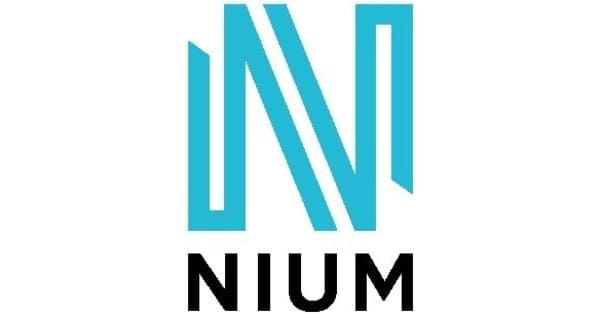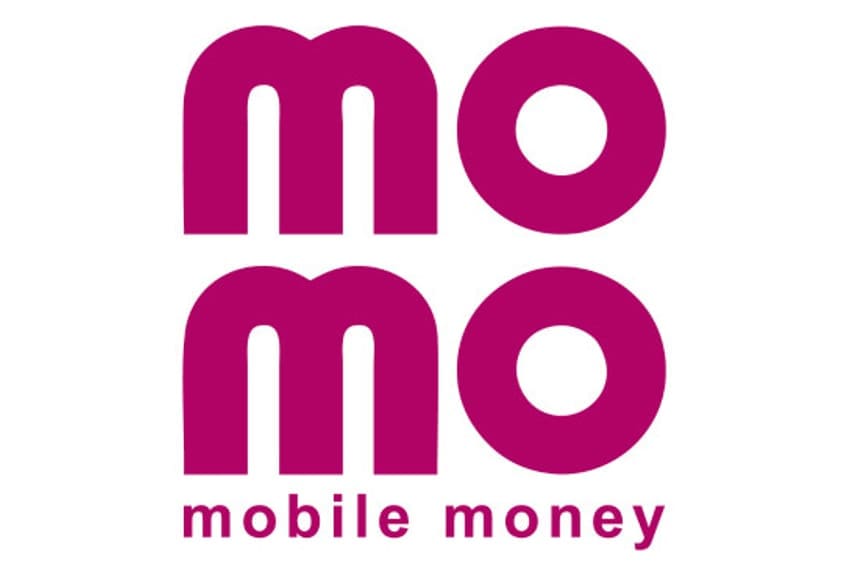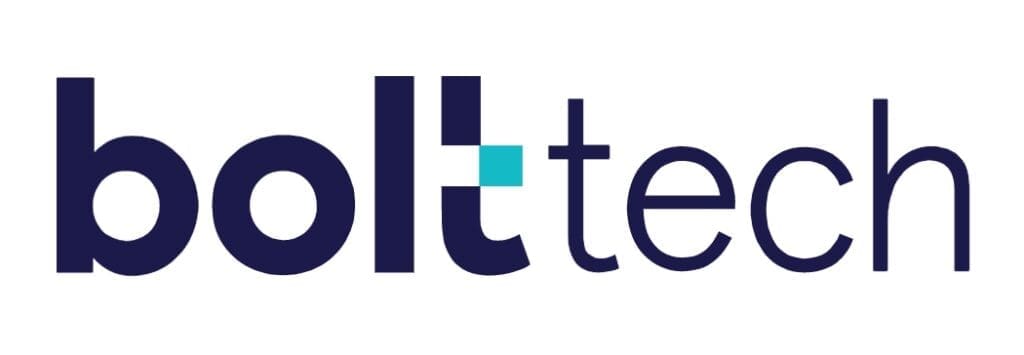With a diverse population and varying levels of technological adoption across countries, Asia presents a unique landscape for app developers and investors.
In this guide, we highlight top apps from leading categories across the region.
Profitable App Categories
There are five categories we’ll look at:
- Gaming apps
- E-commerce apps
- Social networking apps
- Fintech apps, and
- Entertainment/streaming apps
Click on a specific category to skip to it, or keep scrolling to read everything!
Profitable Gaming App Examples
Gaming apps dominate the Asian app market, with countries like China, Japan, and South Korea leading the charge. The following are some of the most popular games in Asia:
Mobile Legends: Bang Bang

Mobile Legends: Bang Bang is a highly popular mobile multiplayer online battle arena (MOBA) game developed and published by Moonton in 2016. It is ranked as the most popular MOBA game on mobile and holds top positions in several countries, including being the most popular game in Indonesia and the fourth most popular game in Singapore.
League of Legends

Developed and published by Riot Games in 2009, League of Legends is a multiplayer online battle arena game available on PC. It ranks as the most popular 5v5 MOBA game and is exceptionally popular in South Korea and Singapore. It is also one of the most watched games on YouTube.
Arena of Valor

Released in 2016 by TiMi Studios, a subsidiary of Tencent Games, Arena of Valor is another prominent mobile MOBA game. It ranks highly among mobile MOBA games and is especially popular in Indonesia.
CrossFire

CrossFire, an online tactical first-person shooter developed by Smilegate Entertainment, has been a staple since its release in 2007. Available on PC, it has maintained a steady user base across Asia.
Dota 2

Valve Corporation’s Dota 2, released in 2013, is a major player in the MOBA genre on PC. It ranks as the most popular game in Singapore and Russia and is a highly popular 5v5 MOBA game globally.
Garena Free Fire

Garena Free Fire is a widely popular mobile battle royale game developed by 111 Dots Studio and published by Garena in 2017. It ranks third among the most popular games in Singapore.
Honor of Kings

Another successful title by TiMi Studios and Tencent Games, Honor of Kings, released in 2015, is a mobile MOBA game that has achieved notable popularity in Asia, ranking seventh among mobile MOBA games.
PlayerUnknown’s Battlegrounds (PUBG)

PUBG, an online multiplayer battle royale game developed by PUBG Corporation, a subsidiary of Bluehole, was released in 2017. Available on PC, mobile, and consoles, it is especially popular in Russia, Singapore, and Korea.
Call of Duty: Mobile

Call of Duty: Mobile, developed by TiMi Studios and published by Activision in 2019, is a free-to-play shooter game for Android and iOS. It ranks among the top fun games on the App Store and is popular in Singapore and Indonesia.
Clash of Clans

A strategy game developed by Supercell, Clash of Clans was released in 2012 for mobile devices. It is popular in Indonesia and ranks highly among strategy games and Facebook games.
Profitable E-commerce App Examples
The integration of secure payment systems, user-friendly interfaces, and efficient logistics networks has fueled the growth of these top 10 e-commerce platforms in Southeast Asia:
Shopee

Shopee, headquartered in Singapore, is the largest e-commerce platform in Southeast Asia. Operating in countries like Indonesia, Vietnam, Philippines, Thailand, Malaysia, and Singapore, Shopee attracts around 470 million monthly visits. Its mobile-first approach, along with features like Shopee Guarantee for payment security, has made it a leader in the region.
Lazada

Lazada, another major player headquartered in Singapore, operates in the Philippines, Thailand, Indonesia, Vietnam, and Malaysia, with approximately 96 million monthly visits. Backed by Alibaba, Lazada offers a wide range of products from electronics to groceries and has a robust logistics network to support its operations.
Tokopedia

Tokopedia, based in Jakarta, Indonesia, is a leading e-commerce platform with about 68 million monthly visits. Known for its vibrant marketing and significant local presence, Tokopedia has attracted investments from Alibaba and SoftBank, making it a key competitor in the Indonesian market.
Blibli

Blibli, also headquartered in Jakarta, Indonesia, focuses on highlighting local brands and ensuring fast delivery through its in-house logistics. With around 26 million monthly visits, Blibli has differentiated itself by integrating video streaming into its platform.
Bachhoaxanh

Based in Ho Chi Minh City, Vietnam, Bachhoaxanh is a grocery retail chain with an e-commerce platform offering a variety of fresh food and household items. It attracts about 21 million monthly visits and provides fast delivery services to meet daily shopping needs.
Carousell

Carousell, founded by three Singaporean students, is a major C2C and B2C marketplace operating in Singapore, Philippines, Malaysia, and Indonesia, with around 15 million monthly visits. Known for its user-friendly platform, Carousell facilitates the buying and selling of a wide range of products.
Orami

Orami, an Indonesian e-commerce platform, specializes in maternal and infant products, household items, and personal care. It attracts around 10 million monthly visits and caters to the youthful population of Indonesia.
PG Mall

PG Mall, headquartered in Malaysia, is a prominent local e-commerce platform with approximately 8.7 million monthly visits. It offers a diverse range of products and has formed partnerships to support cross-border e-commerce.
Chotot

Chotot, based in Vietnam, is an online marketplace that allows users to buy and sell a wide variety of items. With about 7.2 million monthly visits, it is known for its ease of use and direct communication between buyers and sellers.
Tiki

Tiki, another major Vietnamese e-commerce platform, is known for its strong local presence and excellent customer service. It attracts around 5.9 million monthly visits and has received significant investments, including from JD.com.
Profitable Social Networking App Examples
Social networking apps are immensely popular in Asia, serving as primary platforms for communication and content sharing that offer opportunities for businesses through advertising, influencer marketing, and in-app purchases.
Here are some of the top social networking apps in Southeast Asia:

Facebook is a leading social media platform in Southeast Asia, particularly popular in countries like the Philippines, Vietnam, Malaysia, Indonesia, and Thailand. It allows users to connect with friends and family, share updates, photos, and videos, and join groups of shared interests. Facebook’s extensive reach and user-friendly interface make it a dominant force in the region.
- Philippines: 84.45 million social media users, 72.5% of the population.
- Vietnam: 66.2 million users as of early 2023.
- Malaysia: 20.25 million users as of early 2023.
- Indonesia: 119.9 million users as of early 2023.
- Thailand: 48.1 million users as of early 2023.

WhatsApp is a widely used messaging app in Southeast Asia, known for its simplicity and reliability. It enables users to send text messages, voice messages, make voice and video calls, and share images, documents, and user locations.
- Malaysia: 89.3% of internet users aged 16 to 64 use WhatsApp monthly.
- Indonesia: One of the most popular social media platforms.
Facebook Messenger

Facebook Messenger, integrated with Facebook, is a popular messaging app in the Philippines. It allows users to send messages, make video calls, and share multimedia files. Its seamless integration with Facebook enhances its popularity.

Instagram, owned by Facebook, is a favorite social media app in the Philippines and Indonesia. It focuses on photo and video sharing, with features like Stories, IGTV, and Reels, catering to the visual-centric preferences of users.
- Indonesia: 89.15 million users as of early 2023, with ad reach equivalent to 32.3% of the population.
Zalo

Zalo is a prominent social media and instant messaging app in Vietnam that offers messaging, voice and video calls, and content sharing. Zalo has expanded beyond Vietnam to countries like the United States, Myanmar, Japan, Taiwan, Thailand, South Korea, and Malaysia.
LINE

LINE is a popular messaging app in Thailand where 90.7% of internet users aged 16 to 64 use LINE monthly. It is known for its extensive collection of “chat emoticons” and additional features like news updates, shopping, and games.
Profitable Finance and Fintech App Examples
The combination of technology and finance has resulted in a thriving fintech ecosystem, with apps catering to both the banked and unbanked populations.
Coda Payments

Coda Payments specializes in cross-border monetization solutions for digital products and services across Southeast Asia. Founded to facilitate payments for app developers and online game publishers, Coda Payment recently raised $690 million, valuing the company at $2.5 billion. It has garnered significant investments from entities like GIC, Insight Partners, and Smash Capital.
Atome Financial

Atome Financial is a prominent player in the “buy now, pay later” sector across Asia, offering flexible deferred payment options. Launched in 2019, Atome Financial partners with over 15,000 retailers and operates in 10 regional markets. It raised over $400 million in its latest funding round led by SoftBank Vision 2 Fund and Warburg Pincus, reaching a valuation exceeding $2 billion.
Nium

Formerly known as Instarem, Nium is an embedded finance startup that serves banks, payment providers, and businesses globally. It simplifies business payments, enhances customer experiences, and boosts revenue streams. Nium secured over $200 million in its Series D funding, surpassing a valuation of $1 billion, marking its significant presence in the B2B payments sector.
VNLife

VNLife, the parent company of VNPay, dominates Vietnam’s digital payment landscape with nearly 200,000 acceptance points nationwide. Following a $250 million investment led by General Atlantic and Dragoneer Investment Group in 2021, VNLife achieved a valuation exceeding $1 billion, solidifying its position as a leading fintech firm.
M_Service

Headquartered in Ho Chi Minh City, M_Service operates MoMo, Vietnam’s leading mobile wallet. MoMo facilitates seamless digital payments, bill payments, and transfers. M_Service has raised a total of $433.7 million, cementing its status as one of the most funded and valuable private companies in Vietnam.
Xendit

Founded in 2014, Xendit provides payment solutions that streamline transactions for businesses across Indonesia and the Philippines. With capabilities spanning direct debit, virtual accounts, e-wallets, and more, Xendit closed a $300 million Series D funding round in 2022, achieving unicorn status with a valuation of $1 billion according to CB Insights.
Akulaku

Established in 2016, Akulaku operates as a digital finance platform in Indonesia, the Philippines, and Malaysia. It serves underserved markets with digital banking, financing, investment, and insurance services. Akulaku has raised approximately $320 million in venture capital funding and is valued at $2 billion, making it one of the most valuable fintech startups in the region.
Bolttech

Bolttech is an international insurtech company reshaping the insurance landscape globally. With a focus on connecting people with diverse insurance options, Bolttech raised $217.2 million in funding rounds, attracting investments from Tokio Marine and Alma Mundi Ventures. It continues to innovate in the insurance technology sector.
Thunes

Thunes operates a B2B cross-border payment network connecting mobile wallet providers, banks, and technology firms across 100 countries and 60 currencies. Headquartered in Singapore with global offices, Thunes secured $160 million in funding rounds, driving its mission to simplify financial services in emerging markets.
Nansen

Nansen stands out in the fintech sector with its blockchain analytics platform. It provides insights into on-chain data and wallet activities across major blockchains. Nansen’s data warehouse categorizes millions of labeled wallets, enhancing blockchain analysis for institutions and individuals. Having raised $88.2 million in funding,
Profitable Entertainment and Streaming App Examples
Entertainment and streaming apps have disrupted traditional media consumption patterns, providing users with on-demand access to entertainment.
Netflix

Netflix stands out as the top revenue-generating streaming app in various global regions, including India, Indonesia, and Australia. Despite its premium pricing starting at $8 per month in emerging markets, Netflix continues to lead in revenue, underscoring its strong consumer appeal.
Hotstar TV

In India, Hotstar TV closely competes with Netflix, ranking as the second-highest revenue-generating streaming app. Known for its extensive coverage of live cricket and priced competitively at approximately $3 per month (199 Rs), Hotstar TV attracts a broad audience.
V Live

V Live, developed by Korea’s Naver, has carved a niche in Asia by featuring live shows hosted by popular Korean celebrities. The platform allows viewers to engage by sending digital gifts, contributing to its popularity in the region.
Hooq

Hooq has gained traction as a streaming service offering diverse content across multiple genres in Southeast Asia. It maintains a strong presence in countries like Indonesia and the Philippines, appealing to local audiences with varied entertainment options.
Viu

Viu emerges as a prominent streaming app across multiple Southeast Asian countries, including Indonesia, Singapore, and Malaysia. With a focus on Asian dramas and localized content, Viu attracts subscribers seeking regional entertainment choices.
Tencent Video

Tencent Video, a leading Chinese streaming service, offers a wide array of content ranging from dramas to movies and reality shows. It competes strongly in markets like China and Malaysia, leveraging its vast content library and user engagement features.
iQiyi

iQiyi, Netflix’s partner in China, dominates the streaming landscape with its extensive collection of both local and international content. Known for its affordable subscription rates and exclusive programming, iQiyi appeals to a broad demographic in Asia.
YouTube

YouTube leads in downloads across most Asian countries, emphasizing its popularity for user-generated content and diverse video categories. However, its subscription service, YouTube Red, struggles to gain traction in the region due to content perception and pricing issues.
Amazon Prime Video

Amazon Prime Video competes with Netflix and local services in markets like India and Japan. Bundled with Amazon Prime membership, it offers competitive pricing and exclusive content, positioning itself as a viable alternative in the streaming space.
Douyu

Douyu, popular in China, focuses on live streaming of gaming content and esports tournaments. It attracts a dedicated user base interested in interactive gaming experiences and live commentary.
Line TV

Line TV in Taiwan and Thailand caters to local audiences with a mix of original series, dramas, and variety shows. It remains competitive with its localized approach and strategic partnerships within the region.
4 Emerging Trends and Opportunities
While it’s great that these apps are gaining millions of followers and making millions in revenue now, what can the average reader learn and apply to their own projects?
We believe there are four takeaways.
Mobile Gaming Innovation
Mobile gaming continues to evolve, with innovations such as augmented reality (AR), virtual reality (VR), and cloud gaming shaping the future of the industry. Developers are creating more immersive and interactive experiences, leveraging advanced technologies to captivate users and expand the gaming ecosystem.
Social Commerce
Social commerce is an emerging trend where social networking platforms integrate with e-commerce functionalities, allowing users to shop directly within the app. This fusion of social interaction and online shopping enhances user engagement and provides businesses with new avenues for reaching consumers.
Decentralized Finance (DeFi)
Decentralized finance (DeFi) is revolutionizing the fintech space by enabling peer-to-peer financial transactions without intermediaries. DeFi apps leverage blockchain technology to offer services like lending, borrowing, and trading, promoting financial inclusivity and innovation in Asia.
Virtual Experiences
Virtual experiences, driven by advancements in AR and VR, are transforming various sectors, including entertainment, education, and tourism. These experiences provide users with immersive environments, offering new ways to interact, learn, and explore. The potential for virtual experiences in the app market is vast, presenting exciting opportunities for developers and businesses alike.
Conclusion
The app market in Asia is vibrant and dynamic, characterized by profitable categories and emerging trends that promise to shape the future of the industry.
As developers continue to innovate and adapt to local preferences, the potential for growth and success in this region remains substantial.
We look forward to hearing about how you dethroned FitBit as market leader in a few years!
Hey there stranger, thanks for reading all the way to the end. Consider joining our mailing list for a one-stop resource on everything from micro SaaS validation all the way to execution and promotion. Get a nifty list of questions to ask app developers when you sign up!
App Developer Interview Questions Template
Download this template now so you know exactly what to ask App Development Agencies! Let us know where should we send it through the form below.





